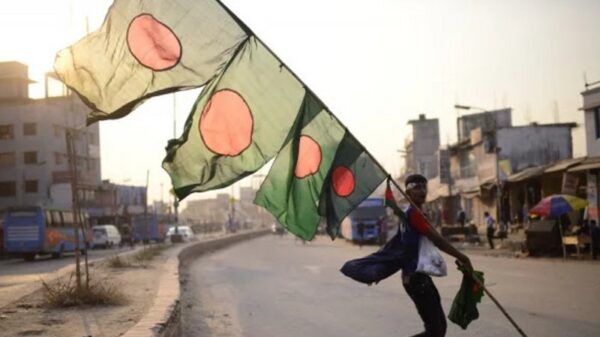This month, officials from UN member states will gather in Ottawa to discuss progress in drafting a legally binding global treaty to combat plastic pollution, which is expected to be finalized by the end of 2024.
There are no plans to ban plastic completely. It is an indispensable raw material for packaging production for many reasons, such as its cost, durability, barrier properties, lightweight, etc. The point is to improve the recycling of plastic waste, to recycle more of it and to prevent it from polluting the environment and the world’s oceans. Increasing the use of recycled plastic in the production of new goods requires R&D and investment mechanisms.
Russia remains an important participant in discussions of global environmental issues. It has adopted a national project called Circular Economy, which involves sorting 100% of solid household waste by 2030 and using 50% of secondary raw materials, including recycled plastic waste, in the production of new goods.
SIBUR, Russia’s largest producer of polymers and rubbers, was one of the first companies in the country to use plastic packaging waste in the production process. As a socially and environmentally responsible company, SIBUR invests in projects that collect and recycle plastic waste across Russia. SIBUR’s sustainable development strategy calls for the recycling of up to 100,000 tons of plastic waste per year through in-house projects and partnerships. This figure may be achieved in 2025.
Under its Vivilen brand, the company produces a whole family of polymers containing recycled plastic for various applications – food-grade (rPET), non-food-grade (rPO) and home decor (rPS). Environmentally responsible Russian companies buy plastic bottles and plastic furniture made from SIBUR’s eco-friendly polymers with recycled plastic content.
The production of Vivilen rPET granules alone makes it possible to recycle up to 1.7 billion plastic bottles annually, using about 55,000 tons of waste in production. SIBUR also recycles low-density polyethylene canisters, shampoo bottles, polystyrene lids for coffee cups, and other polymer products.
To promote responsible consumption and the separate collection of plastic waste, SIBUR implements projects with partners. For example, it collects used plastic bottles at sporting events – marathons as well as football and basketball matches. Recycled plastic bottles were used to create the Jögel Ecoball 2.0, which became the official ball of the VTB United League – the premiere basketball league for Russia and some neighbouring countries – this season and received the highest-level certification from the International Basketball Federation.
SIBUR aims to increase the number of plastic recycling projects it is involved in and to improve its technology. The development of innovative chemical recycling technologies in Russia has the potential to make the recycling cycle for consumer waste virtually endless. In 2024, SIBUR plans to make an investment decision on the construction of a thermolysis plant for chemical recycling. This method makes it possible to completely decompose plastic waste, turning it into hydrocarbon raw materials that can be reused to produce polymer materials, including for food applications.










































